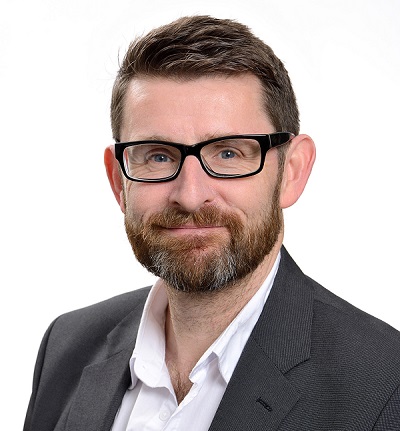Links to external sources may no longer work as intended. The content may not represent the latest thinking in this area or the Society’s current position on the topic.
Networking event for Industry Fellows and Entrepreneurs in Residence

This Industry Fellows College networking event takes place at the Royal Society on 22 November from 9am-6pm.
This conference will address cross-sector collaborations by bringing together past and current Royal Society Industry Fellows, Entrepreneurs in Residence and their collaborators.
Participants will have the opportunity to discuss issues and successes and hear about the wider work of the Society. Training courses will also be offered to participants.
The Royal Society Industry summer placement programme supports students to complete a placement with an Industry Fellow. We will be joined at this event by our summer students, who will present their work.
As well as past and current Industry Fellows, there will be a limited number of places at this event for others interested in the relationship between industry and academia. If you would like to attend, please email industry@royalsociety.org with a short explanation as to why you are interested in attending.
Organisers
Schedule
|
Foundations, Fluidity and Flexibility
I have been amazingly lucky to have had a very varied career across academia and industry but a big part of that has been because I have been open to opportunities, pursued what I thought was important and was happy to move outside my comfort zone. From studying monkey behaviour at London zoo, through to drug discovery and development in various pharmaceutical companies, setting up my own company and then running the BBSRC to AI and machine learning my career journey has been anything but dull! 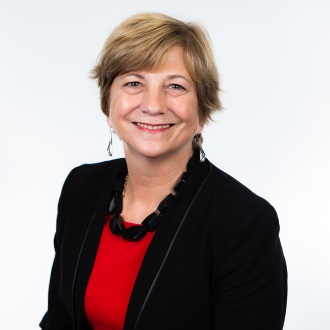
Professor Jackie Hunter CBE, BenevolentAI

Professor Jackie Hunter CBE, BenevolentAIBenevolentAI is a British held AI company which is using AI to augment the research capabilities of drug scientists, radically changing the way R&D is done. Uniquely, BenevolentAI has an end to end capability from early discovery to clinical development. Jackie joined the company with over thirty years of experience in the bioscience research sector, working across academia and industry including leading neurology and gastrointestinal drug discovery and early clinical development for GlaxoSmithKline. She has also been a champion of new business models such as open innovation in the pharmaceutical sector. Jackie moved to BenevolentAI because she recognized the need for disruption in the industry and the need to apply novel advanced technologies to R&D to improve efficiency and increase the successful discovery of new medicines for patients. She was awarded a CBE in the Queen's Birthday Honours list for Services to the Pharmaceutical Industry and was recognized by Forbes Magazine as one of the top 20 Women Advancing AI Research. She is a member of the Biomedical Board for A*Star in Singapore and the Science Advisory Board for the Data Science Institute at Imperial College. She is also a visiting Professor at Imperial College and at St George's Hospital Medical School. |
|
An introduction and the importance of the Royal Society science, industry and translation programme
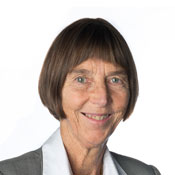
Dame Sue Ion GBE FREng FRS

Dame Sue Ion GBE FREng FRSDame Sue Ion GBE FRS FREng is Hon President of the National Skills Academy for Nuclear. She was previously Chairman of the UK Nuclear Innovation Research Advisory Board (NIRAB). She represents the UK on a number of international review and oversight committees for the nuclear sector including the Euratom Science and Technology Committee which she chaired until late 2018. She was the only non-US member of the US Department of Energy’s Nuclear Energy Advisory Committee on which she has served from 2005-2020.She currently serves as a member of the Office of Nuclear Regulation Independent Advisory Panel. Sue spent 27 years with British Nuclear Fuels Ltd (BNFL) rising to the position of Chief Technology Officer in 1992, a post she held until 2006 when she assumed a number of mainly voluntary roles in Science and Engineering, including membership of the UK Council for Science and Technology and the Engineering and Physical Sciences Research Council (EPSRC). She was Vice President of the Royal Academy of Engineering 2002-2008 and chaired its MacRobert Committee 2013-2019. Sue was Deputy Chair of the Board of the University of Manchester until September 2018 and currently serves on the Board of the University of Central Lancashire. Her core expertise is in materials science and engineering associated with the nuclear sector. Sue is a member of the Chief Scientific Advisor for Wales’s Science and Innovation Advisory Council. She has been a Visiting Professor in the Department of Materials at Imperial College since 2006, holds an Honorary Professorship at the University of Manchester and is now Chair of the Royal Society Science, Industry and Translation Committee. |
|
A new formulation chassis offering enhanced performance and sustainability
A new type of gel, formed where colloids are dispersed in a nematic phase, was published in Science in 2011 by Dr Wood and co-authors from the University of Edinburgh. This type of gel can be configured to allow colloids to be drawn to a surface. Through a Royal Society Industry Fellowship with The Mentholatum Company Ltd, makers of pain relief products like Deep Heat, Dr Wood set out to explore whether this type of gel could be made with nematic phases similar to those used in topical creams. Her PhD student, Navneeta Katyan, funded by the SCI Sydney-Andrew studentship worked on exploring the physics of the structure and dynamics of these composites. During this presentation Dr Wood will discuss the journey of research and the discovery of new physics that could change the way that companies make formulated products. A patent has been filed, and since the technology is applicable across sectors, the team are looking for additional partnerships to take this discovery through to product. This provides a more environmentally-friendly alternative to current technologies; this may be attractive to companies wishing to comply with a recent EU Directive. 
Dr Tiffany Wood, University of Edinburgh

Dr Tiffany Wood, University of EdinburghDr Tiffany Wood is a soft matter physicist from the University of Edinburgh and carried out a Royal Society Industry Fellowship, between 2015-2019, with the Mentholatum Company Ltd, makers of iconic topical pain relief products such as Deep Heat. Through her research Dr Wood identified, and filed for patent, a new route to making formulations with excellent sensory performance and better environmental sustainability than current standards. Dr Wood is the Director of the Edinburgh Complex Fluids Partnership that has worked with over 40 companies to generate impact from the outputs of the Soft Matter and Biological Physics research group. |

Professor Aristides Matopoulos, Aston University

Professor Aristides Matopoulos, Aston UniversityAristides is an Associate Professor in Supply Chain Design & Logistics Systems at Aston University and a Visiting Professor at the University of Lille, in France. His area of expertise is in the assessment and development of supply chain capabilities; how to design the supply chain based on strategic and logistical assessments. His industrial collaborators include Williams Advanced Engineering, JLR, Marks & Spencer. Recently, he led the development of the Supply Chain Readiness Level Tool to assess the maturity and the capabilities of supply chains and received funding (approx. £1m) from ERDF to implement the tool and to support 150 SMEs in The Marches, GCGP and D2N2 in the manufacturing sector. He has also served as an evaluator of research proposals for UKRI, the French National Research Agency and Canada Excellence Research Chairs. 
Dr Jackie Chappell, University of Birmingham, UK

Dr Jackie Chappell, University of Birmingham, UKDr Jackie Chappell is Senior Lecturer in Animal Behaviour at the University of Birmingham. Her research has spanned a range of questions and species from a DPhil on the mechanisms of homing pigeon navigation at the University of Oxford, to investigating innovation and tool manufacture in New Caledonian crows and children, and physical cognition in great apes. Her research focuses on developing novel approaches to understand the ways in which cognition is shaped by complex interactions between perception, action, morphology and the animal's physical environment, then using this knowledge to improve the lives of captive animals. 
Professor Matthew Gibson, University of Warwick, UK

Professor Matthew Gibson, University of Warwick, UKProfessor Matthew I Gibson holds a personal chair in the Department of Chemistry and also the Medical School at the University of Warwick, UK. Matt completed his Degree (2003) and PhD (2007) at the University of Durham (UK), before post-doctoral research at EPFL (Switzerland). Matt is currently a Royal Society Industry Fellow, ERC Consolidator Grant holder and co-founder of Cryologyx Ltd. Matt’s multidisciplinary research group focusses on developing biomaterials to address healthcare challenges. Most recently they have developed tools for COVID-19 diagnostics and polymers to protect biologics during cold storage. 
Dr Nikos Dikaios, University of Surrey

Dr Nikos Dikaios, University of SurreyI am a Lecturer at CVSSP, University of Surrey. I completed my DPhil (2011) in medical physics from the University of Cambridge; and worked in magnetic resonance imaging as a research associate at UCL until 2016. My research interests are tomography, mathematical optimisation, cancer informatics and physics. Since 2019 I am a Royal Society Industry Fellow working with Elekta on the world's first linear accelerator integrated with high field MRI. The aim is to perform real-time visualisation for truly adaptive radiotherapy, with a potential to monitor tumour response so that treatment can be adjusted accordingly. I have also been awarded with the EPSRC first grant to work on imaging methods to optimise cancer treatment with high energy proton beams. 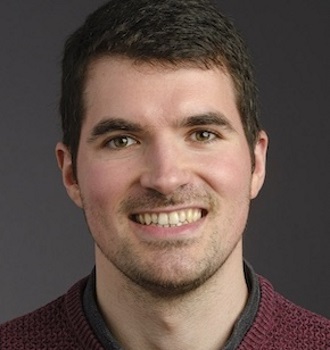
Dr Stefano Albrecht, University of Edinburgh, UK

Dr Stefano Albrecht, University of Edinburgh, UKDr. Stefano Albrecht is Lecturer in Artificial Intelligence in the School of Informatics, University of Edinburgh, where he leads the Autonomous Agents Research Group (http://agents.inf.ed.ac.uk). He is a Royal Society Industry Fellow working with UK-based company FiveAI to research and develop AI technologies for autonomous vehicles. 
Dr Zoltan Nagy, Loughborough University

Dr Zoltan Nagy, Loughborough University
Professor Peter O'Brien, University of York

Professor Peter O'Brien, University of YorkPeter O’Brien is a Professor of Organic Chemistry at the University of York. His research focuses on the development of new synthetic methods for use in the pharmaceutical industry. He has particular interests in asymmetric synthesis, organolithium methodology and the synthesis of nitrogen-containing heterocycles, and has made key and enabling contributions in each of these areas, having been awarded the Royal Society of Chemistry Organic Stereochemistry Award in 2013 and the AstraZeneca, GlaxoSmithKline, Pfizer & Syngenta prize for Process Chemistry Research in 2017. He has become particularly interested in addressing the synthetic challenges presented by fragment-based drug discovery in 3-dimensions and this is the topic he will pursue in collaboration with AstraZeneca during his Royal Society Industry Fellowship. Peter is also a passionate teacher and was awarded a Vice-Chancellor’s Teaching Award in 2015 and the University’s Teacher of the Year in the York University Student Union Excellence Awards in 2019. |
Commercial literacy: How do companies work?
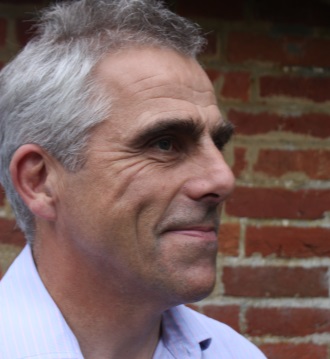
James Otter, Founder of CommLit.Online, Ellipson, and former Entrepreneur in Residence

James Otter, Founder of CommLit.Online, Ellipson, and former Entrepreneur in ResidenceJames was one of the RS EIRs at the University of Southampton from 2018 to 2021. He was sponsored by the University of Southampton’s Institute for Life Sciences. During this time he mentored a range of start-ups and started the commercial literacy course, which gives academic entrepreneurs a grounding in business issues. Over the last 20 years he has led a range of turnarounds of technology companies in a range of sectors including genomics, drug delivery, health IT, nanotechnology, veterinary MRI and sound and vibration instrumentation. He has chaired or been an NED on Octopus Venture Capital Trusts since 2004. His earlier corporate career was with Zeneca Agrochemicals (now Syngenta) where he held a range of international commercial management positions, and before Zeneca he worked with aid organisations in the field in Nepal and the Sahel. James has a degree in Natural Sciences from Cambridge and an MBA from INSEAD. |
|
|
The entrepreneurial journey and key decisions along the way
In this presentation, Lucinda Bruce-Gardyne, Founder of Genius Foods Ltd, the UK’s leading gluten free bakery brand, will be taking you through questions and challenges entrepreneurs commonly navigate, while they find the most efficient and impactful route for converting their business idea into an established and sustainable business. There will be an opportunity to ask Lucinda questions in the Q&A session following the presentation. 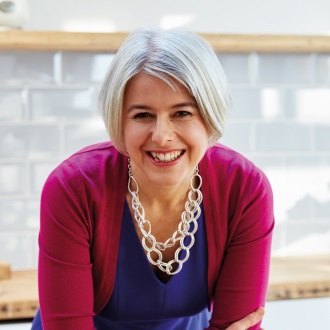
Lucinda Bruce-Gardyne, founder of Genius Foods

Lucinda Bruce-Gardyne, founder of Genius FoodsLucinda Bruce-Gardyne is the creator of the first fresh gluten free bread on the market and Founder of Genius Foods Ltd, the UK’s leading brand in fresh gluten and dairy free bakery products. She is an experienced Executive and Non Executive Board Director, Food Scientist and Ingredient Functionality Expert, Innovator of great tasting gluten and dairy free food, Author, Chef and Mother. Lucinda is dedicated to helping people with dietary restrictions, enjoy a mainstream diet and lifestyle. She is committed to supporting scaling businesses, budding entrepreneurs, and finding sustainable, ground-breaking food solutions to improve public health and well-being. Lucinda is also passionate about the important role science plays in business growth and efficiency. Lucinda is also Royal Society Entrepreneur in Residence at Edinburgh University, Board Director of The Scale Up Institute, and on the Scotland Food and Drink Board. |
IP: so much more than patents

Dr Pete Hotten, NuAge Vision

Dr Pete Hotten, NuAge VisionWith 25+ years’ experience in executive and non-executive roles within both the private and public sectors Pete has developed the ability to maximise the interaction between the research and industrial domains. Initially trained in chemistry and microbiology Pete retains a particular interest in the life sciences. From heading the IP strategy in a biotech to launching a series of spin-out companies from universities Pete has worked on a diverse set of technologies; from bone grafts to pollination and various molecular biology applications. Pete has recently been appointed a Royal Society Entrepreneur-in-Residence at Swansea University where he is actively providing mentoring and is involved in the genesis of more spin-outs. |
|
|
What investors look for before they invest
The session will help participants understand what investors focus most keenly on at different stages of the investment cycle, from Seed through to Series A and on to Series B. Though there are significant overlaps at each point, in terms of the raw elements that investors look for, the relative importance and level of development of each of the constituent parts changes as a business evolves in its development. The session will try to dispel the myths surrounding institutional investors and equip participants with the information that they need in order to have successful investor conversations. 
Dr Luke Hakes, Octopus Ventures

Dr Luke Hakes, Octopus VenturesLuke joined Octopus Ventures in 2008. As well as being a General Partner and heading up the firms “Better Faster” strategy he sits across both the Future of Health and Future of Industry Teams, where he works with the rest of the origination team to identify and invest in the next generation of companies that will revolutionise both the health and industrial landscapes. Prior to joining Octopus, Luke started his career as a scientist where he worked to understanding human disease by using computational methods and big data to reveal the secrets of evolution. After that, he worked as a Management Consultant specialising in the Capital Markets technology sector. Luke holds a BSc (hons) in Biochemistry and Biotechnology, an MSc in Computational Biology and a PhD in Computational Genetics all from the University of Manchester. In addition to his role at Octopus, Luke is also Chairman of UMI3 the University of Manchester’s technology transfer office and sits on the University’s Global Leadership Board. |

